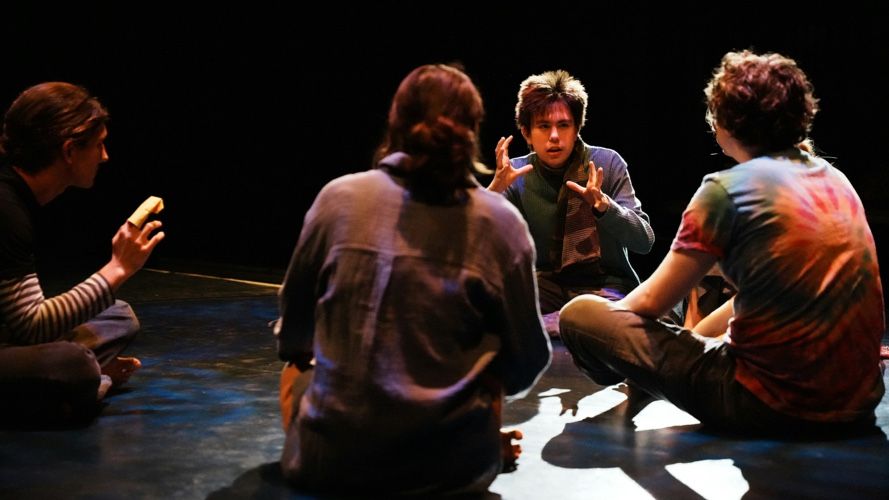Performing arts camps guide: Day vs overnight

Introduction
Whether your child dreams of standing under the spotlight or simply wants to explore their creative side, theatre and performing arts camps offer a magical way to build confidence, self-expression, and teamwork. But one big question many first-time camp parents face is: should we choose a day camp or an overnight camp?
This guide walks you through everything you need to know-from the types of activities offered to daily schedules, packing lists, and how to decide between a local day option and the full overnight experience. Our goal is to give you the clarity and confidence to choose what’s best for your child-and your family.
Key takeaways:
- Theatre and performing arts camps focus on confidence, creativity, and collaboration.
- Day camps are great for younger or first-time campers, offering local, shorter sessions.
- Overnight camps allow for deeper immersion, independence, and social growth.
- Schedules, supervision, and packing needs differ between day and overnight options.
- Choosing the right format depends on your child’s age, comfort level, and goals.
Table of Contents
What is a theatre-performing-arts camp?
Theatre and performing arts camps are immersive programs designed to help kids explore acting, singing, dancing, stagecraft, and other aspects of live performance. These camps attract children with a passion for creativity and expression, offering opportunities to build confidence and communication skills through performance.
For day campers
Day versions of these camps usually run in local community theaters, schools, or studio spaces. Children attend for several hours each day-often from 9 AM to 3 PM-then return home in the evening. These camps emphasize variety, giving kids a taste of different performance skills with a balance of structured time and fun breaks. Staff typically includes local teaching artists or counselors with performance backgrounds.
For overnight campers
Overnight performing arts camps create a deeper, round-the-clock experience. Held at dedicated campgrounds or arts conservatories, campers live on-site and work together on full-length productions or showcases. These experiences go beyond skill-building-they foster intense collaboration, mentorship, and personal growth in a supportive, all-in environment.
Typical camp activities
Performing arts camps are full of activities that stretch kids’ imaginations and build their stage presence. Campers might rehearse scenes, write scripts, learn choreography, or explore vocal technique. Many camps also incorporate fun electives or creative games to balance the structured performance work.
For day campers
Day campers experience a mix of short-form workshops in acting, voice, or movement. Sessions are designed to introduce new skills and spark confidence without overwhelming younger kids. End-of-week showcases give families a chance to see what their child has learned.
For overnight campers
Overnight campers often work toward larger productions-musicals, plays, or variety shows-giving them the time to refine roles, build sets, and develop team cohesion. Evening activities may include open mic nights, talent shows, or improv games, adding to the fun and bonding.
Sample daily schedule
Day camp schedule
| Time | Activity |
|---|---|
| 9:00 AM | Drop-off & warm-up games |
| 10:00 AM | Acting & voice workshops |
| 12:00 PM | Lunch |
| 1:00 PM | Movement or improv games |
| 3:00 PM | Pick-up |
Overnight camp schedule
| Time | Activity |
|---|---|
| 7:30 AM | Wake-up & breakfast |
| 9:00 AM | Morning rehearsal blocks |
| 12:00 PM | Lunch & downtime |
| 2:00 PM | Creative electives / set building |
| 5:00 PM | Dinner |
| 7:00 PM | Evening programs (campfires, talent shows) |
| 9:30 PM | Lights out |
What to expect as a parent
For day campers
Expect to manage daily drop-offs and pick-ups, often with a quick hello to counselors. You'll likely need to pack your child’s lunch, snacks, and a water bottle each day. Camps usually send daily updates or photo galleries to keep you in the loop. Pricing tends to be more affordable than overnight options and sessions may run for one to two weeks.
Most programs are local, so it’s easy to reach your child if needed. Day camps are a great first step into the camp world, especially for younger children still building independence.
For overnight campers
Overnight camp requires more preparation-think sleeping bags, multiple outfits, toiletries, and labeling everything. Many camps provide an overnight camp checklist to help. Parents usually receive updates through email or a secure app, and some offer scheduled check-ins with staff.
Homesickness is normal, especially in the first few days. Accredited camps are trained in camp counselor safety and camper mental health, offering support as kids adjust. The trade-off? A deeply rewarding experience that builds self-reliance and resilience.
Benefits of theatre and performing arts camps
Day camp benefits
Day camps give kids a low-pressure way to explore theatre without sleeping away from home. They’re typically more affordable, run for shorter sessions, and allow families to stay involved in their child’s experience. They're ideal for testing interest or building a foundation in the arts.
Overnight camp benefits
Overnight performing arts camps immerse children in creativity 24/7. Kids gain deeper performance skills, stronger friendships, and valuable independence. The social bonding and shared experience often lead to lasting memories-and even a love for the stage that lasts well beyond summer.
How to choose between day and overnight
The decision comes down to your child’s age, confidence, and your family’s readiness. Day camps work well for kids ages 6–11 or those not quite ready to sleep away. They’re also a smart option for testing interest in performing arts without a big commitment.
Overnight camps suit older children (typically 10+) who are excited for independence and passionate about the arts. If your child thrives in group settings and is ready for a challenge, they’ll likely love the extended opportunity.
Still unsure? Check out our full day vs overnight camp guide for a deep dive.
FAQ
- What age is best to start performing arts camps?
- Most camps welcome children as young as 6. Day camps are great for beginners, while overnight options usually start around age 10 or when the child is ready for more independence.
- How can I tell if my child is ready for overnight camp?
- Look for signs of independence, like managing bedtime routines solo, staying with relatives overnight, or expressing excitement about being away from home. Readiness varies by child, not just age.
- What if my child gets homesick?
- Homesickness is common, especially in the first few nights. Camps are experienced in easing this transition through buddy systems, routine, and compassionate staff support.
- Will there be a final performance?
- Most theatre camps end with a showcase or production. Day camps may offer informal showcases for families, while overnight camps typically mount full-scale performances.
- What should I pack for a performing arts camp?
- Comfy clothes, closed-toe shoes, water bottles, and any required script materials. Overnight campers will also need bedding, toiletries, and costumes if specified.
Conclusion
Whether you choose a day camp or an overnight experience, theatre and performing arts camps are a powerful way to help your child grow in confidence, creativity, and community. They’ll leave with new skills, lasting memories, and maybe even a lifelong love of the arts.
Every family is different-so trust your gut, involve your child in the decision, and choose the path that fits your comfort level. No matter which route you take, they’ll take center stage this summer.



